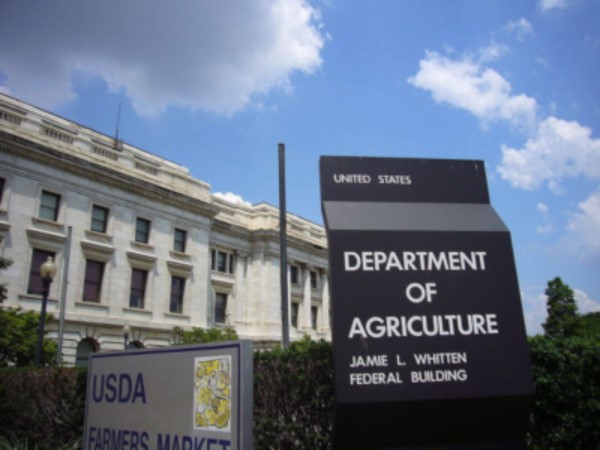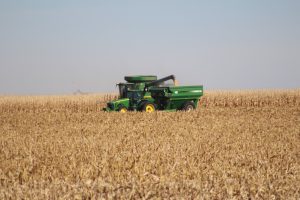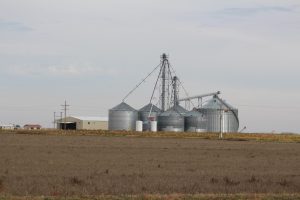Mann, Costa, Moran, Colleagues Urge USDA to Restore NASS Surveys

U.S. Representative Tracey Mann (KS-01), Chairman of the House Agriculture Committee’s Subcommittee on Livestock, Dairy, and Poultry, along with Representative Jim Costa (CA-21), Ranking Member of the House Agriculture Committee’s Subcommittee on Livestock, Dairy, and Poultry, and U.S. Senator Jerry Moran (R-KS), led 70 of their colleagues in penning a letter to U.S. Secretary of Agriculture, Tom Vilsack, urging him to reverse the U.S. Department of Agriculture’s (USDA) decision to cancel or discontinue several National Agricultural Statistics Service (NASS) reports.
The reports provide American farmers, ranchers, and agricultural producers with transparent livestock, grain, and fiber market insights as they position themselves to effectively manage risk and build supply and demand estimates, which help determine commodity sourcing plans to remain operational.
“Droughts, wildfires, sky-high inflation, market fluctuation, and input costs have all driven producers’ risk to an all-time high,” said Rep. Mann “USDA’s decision to cancel the July Cattle Report and discontinue the Cotton Yield Objective Survey and all County Estimates for Crops and Livestock only exacerbates that risk. Farmers, ranchers, and agricultural producers in the Big First and across the country are doing their best as they bear the weight of feeding, clothing, and fueling the world. Secretary Vilsack should immediately reverse this decision and give our producers at least some of the certainty they desperately need and deserve.”
“The USDA’s annual reports on markets and statistics help our farmers and ranchers make informed decisions on the crops they are going to plant and how they manage their livestock,” said Sen. Moran. “Our producers face uncertainty from the weather, market demands, inflation and more. Eliminating these resources creates greater uncertainty for the agriculture industry and harms our producers’ ability to forecast future demands in the market.”
The letter is supported by the National Grain and Feed Association, National Cattlemen’s Beef Association, National Cotton Council, American Farm Bureau Federation, Livestock Marketing Association, Beef Alliance, and Livestock Marketing and Dealers Association.
“We appreciate Rep. Mann’s leadership and lawmakers’ recognition of the highly valuable nature of these reports to the entire U.S. agricultural value chain,” said NGFA President and CEO Mike Seyfert. “NASS county estimates are critical for the operation of agricultural businesses. They are used to build supply and demand estimates, which help determine commodity sourcing plans to keep agribusiness facilities operational. The knowledge the reports provide contribute to an efficient and nimble supply chain. NGFA members, including agricultural exporters, processors and livestock feeders rely on these reports to participate in the export sales market and to make appropriate purchase decisions.”
“The data provided by USDA-NASS in these cancelled reports is vitally important to cattle producers, especially in this current period of the cattle cycle,” said NCBA President and Wyoming rancher Mark Eisele. “USDA’s decision to cut the July Cattle report and County Estimates will only fuel more uncertainty in the market. NCBA thanks Rep. Mann, Rep. Costa, and Sen. Moran for leading a bipartisan group of lawmakers in urging USDA to reverse this decision.”
“The entire cotton industry relies on the fullest range of NASS reports to predict harvests, develop market forecasts, and estimate the potential economic impact of natural disasters,” said President and CEO of the National Cotton Council Gary Adams. “During these challenging times, the National Cotton Council commends this bipartisan effort urging Secretary Vilsack to restore the vital data we lost.”
“AFBF is disappointed in NASS’ decision to drop these crucial reports,” said American Farm Bureau Federation President Zippy Duvall. “County crop and yield estimates provide important data for markets and research, and the decision to cancel the Cattle Inventory Survey runs counter to USDA’s previous commitments to improve fair, competitive and transparent markets. We appreciate Senator Moran, Congressman Mann, and Congressman Costa for their continued support to reverse NASS’ decision.”
“LMA strongly encourages USDA to reconsidering the cancellation of the July Cattle inventory report, which provides valuable public information to the livestock industry,” said Mark Barnett, Livestock Marketing Association President. “We are grateful for Rep. Mann, Rep. Costa, and Sen. Moran for championing these needed reports in a congressional letter.”
“The Beef Alliance recognizes that the USDA and NASS are facing funding challenges which are not dissimilar to the difficulties facing cattle feeders: higher input costs and tighter margins,” said Beef Alliance Chairman John Wilson. “However, the costs associated with cancelling the July Cattle Inventory Report far exceed whatever minimal savings the agency may or may not accomplish given this decision and contradict the agency’s transparency. Unlike other commodities, cattle production inherently involves a multi-year approach to raising, feeding, marketing, and processing. This report is extremely important to market efficiency across the entire beef production sector. This is why we strongly oppose the decision to cancel the cattle inventory report and thank Congressman Mann for his leadership spearheading this important letter.”
“ALMDA’s member livestock markets, dealers, and order buyers rely on USDA NASS data to provide unbiased and accurate national and local livestock inventory data to forecast industry supply and demand trends which are fundamental to achieving robust price discovery for sellers,” said Bryan Forester, President of the American Livestock Markets and Dealers Association. “This data is also used by risk managers, market analysts, the Farm Credit system, banks, allied industry, state extension programs, and countless others in the agriculture industry to provide a range of valuable services to all livestock producers. We call upon USDA NASS to reconsider the elimination of the discontinued reports and immediately restore these reports for the benefit of the entire livestock industry.”









